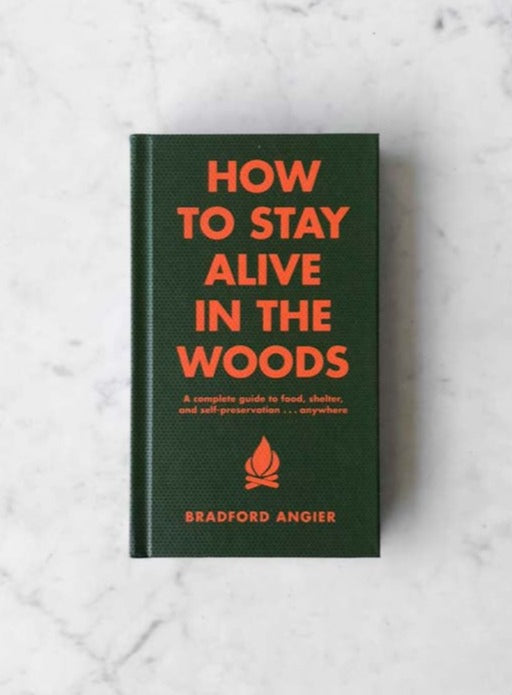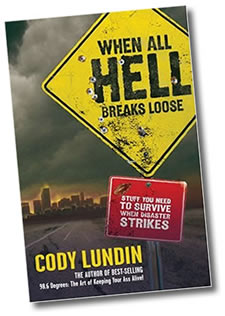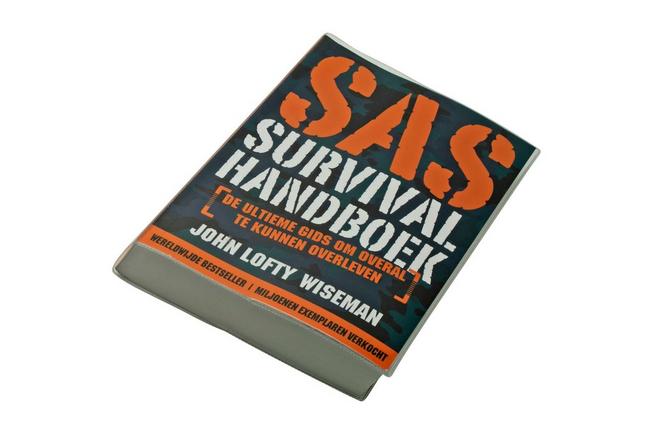
The Best Survival Books – 5 Essential Reads for Prepping, Bushcraft, and Long-Term Resilience
When crisis strikes, knowledge becomes your most powerful weapon. Whether you’re bracing for natural disasters, power outages, economic instability, or full-scale societal collapse, the right survival book can make all the difference. But in a market flooded with gimmicks and gear-heavy guides, truly useful survival literature is rare.
In this article, we’re diving into five of the best survival books ever written—practical, time-tested, and packed with real-world value. These books cover everything from wilderness skills and emergency medicine to off-grid living and self-sufficiency. Whether you're a seasoned prepper or just starting out, each of these reads offers something you can rely on when the lights go out.
1. The Lost Art of Survival by Roy Campbell

At the top of the list is The Lost Art of Survival by Roy Campbell, a game-changing survival manual that reconnects readers with the hard-earned wisdom of our ancestors. Instead of focusing on modern gadgets or short-term prepping hacks, Campbell offers a deep, methodical guide to traditional survival skills that kept generations alive before electricity, antibiotics, or supermarkets existed.
What makes this book truly stand out is its focus on long-term, post-collapse resilience. Campbell teaches readers how to grow food, preserve it without refrigeration, forage edible plants, construct root cellars, make pemmican, and even set up barter systems for a society where currency no longer matters. His writing is clear and actionable, backed by historical research and firsthand experimentation.
If you're looking for a survival book that does more than just scratch the surface—something that could actually guide you through a grid-down world—The Lost Art of Survival delivers in every way. It's ideal for homesteaders, off-grid enthusiasts, and preppers who want more than a bug-out bag checklist. This is survival the old-fashioned way—because that’s what lasts.
2. SAS Survival Handbook by John “Lofty” Wiseman
A cornerstone of any serious survivalist’s library, the SAS Survival Handbook by John Wiseman brings decades of elite military experience into a single, comprehensive guide. Wiseman, a former instructor for the British Special Air Service, knows what it takes to survive in the harshest conditions—and he lays it all out with authority and clarity.
This isn’t just a wilderness guide. It covers navigation, shelter construction, water purification, food sourcing, self-defense, survival psychology, and even how to deal with nuclear fallout. It's one of the most complete resources available for those preparing for everything from remote expeditions to full-scale disasters.
What’s especially useful is its global perspective. Wiseman includes survival techniques for jungles, deserts, mountains, and urban environments alike. Whether you're preparing for a backwoods hike or a sudden collapse of modern infrastructure, this book gives you a no-nonsense, tactical survival education.
3. Bushcraft 101 by Dave Canterbury

If you want to learn how to live off the land with nothing but a blade, some cordage, and your wits, Bushcraft 101 is your manual. Written by survival expert Dave Canterbury—best known for his role on the show Dual Survival—this guide is all about reconnecting with the wilderness and mastering nature through skill rather than gear.
Canterbury breaks down essential bushcraft techniques in a way that’s approachable for beginners but still packed with value for seasoned outdoorsmen. You'll learn firecraft, shelter building, water gathering, tool crafting, and wilderness navigation, all framed around his “5 Cs of Survivability”—cutting tools, combustion, cover, containers, and cordage.
What makes Bushcraft 101 such a valuable survival resource is its simplicity. It teaches you to work with what you have, understand your environment, and develop the confidence to survive without relying on modern conveniences. It’s perfect for campers, hunters, hikers, or anyone wanting to gain true self-reliance in nature.
4. How to Stay Alive in the Woods by Bradford Angier

For those looking for a survival book that balances practical advice with simplicity and timeless wisdom, How to Stay Alive in the Woods by Bradford Angier remains a classic. First published in the 1950s and still widely respected today, this guide strips survival down to its essentials: food, shelter, fire, and water.
Angier, a seasoned outdoorsman and wilderness living advocate, provides clear, accessible guidance on how to navigate emergencies in the backcountry—or survive long-term in nature. The book is divided into four primary sections: sustenance, warmth, orientation, and safety, offering readers everything they need to survive without modern tools or assistance.
What makes this book stand out is its tone. It doesn’t overwhelm with technical jargon or military tactics—instead, it feels like a calm, experienced mentor walking you through each step of surviving in the wild. Whether you're a weekend hiker or a serious prepper, How to Stay Alive in the Woods is a reliable resource that deserves a spot on your shelf. It's the kind of field guide you can actually use—and trust—when things go wrong.
5. When All Hell Breaks Loose by Cody Lundin

Written by survival instructor and TV personality Cody Lundin, When All Hell Breaks Loose stands out as one of the most comprehensive and practical survival books available today. Unlike wilderness-only guides, this book focuses heavily on urban and suburban survival during long-term disasters—making it especially relevant for modern readers.
Lundin approaches preparedness with a refreshingly direct tone, combining humor, raw honesty, and deep expertise. The book tackles what to do when the systems we depend on—electricity, plumbing, healthcare, supply chains—suddenly vanish. He covers everything from purifying water and managing hygiene without modern infrastructure to improvising heat, cooking without power, and maintaining mental health during prolonged emergencies.
What makes this guide so valuable is its accessibility. You don’t need military training or wilderness experience to understand and apply what Lundin teaches. His background in survival education comes through in every page, offering clear, actionable advice designed for everyday people in real-world crises. It’s not just about surviving a night in the forest—it’s about getting through weeks or even months of disruption with resilience, calm, and confidence.
When All Hell Breaks Loose has earned its place among the best-rated survival books for a reason. It prepares you not just for the event itself, but for the psychological and practical realities of life after the disaster has begun.
Why You Should Read Survival Books Before You Need Them
Reading survival books isn't about fear—it’s about self-reliance in a world that’s becoming increasingly unpredictable. The best survival books don’t just offer practical skills like fire-starting or food preservation—they reshape your mindset. They teach you how to remain calm, adapt quickly, and make smart decisions when everything around you is uncertain.
Whether it’s a natural disaster, a power grid failure, economic collapse, or global instability, knowledge is what separates panic from preparation. The five books listed above—especially The Lost Art of Survival—equip you with the tools to not just survive, but lead, rebuild, and protect what matters most.
At The Lost Book Project, we believe this kind of knowledge is more important now than ever. That’s why, in the months and years ahead, we’ll be putting a special focus on publishing a growing collection of survival guides, preparedness manuals, and off-grid living resources. We're not just preserving forgotten wisdom—we're preparing for a future where that wisdom may be needed again.
If you're serious about resilience, now is the time to start learning. Because when the world changes, the people who thrive won’t be the ones with the most gear—but the ones who know what to do with it.

